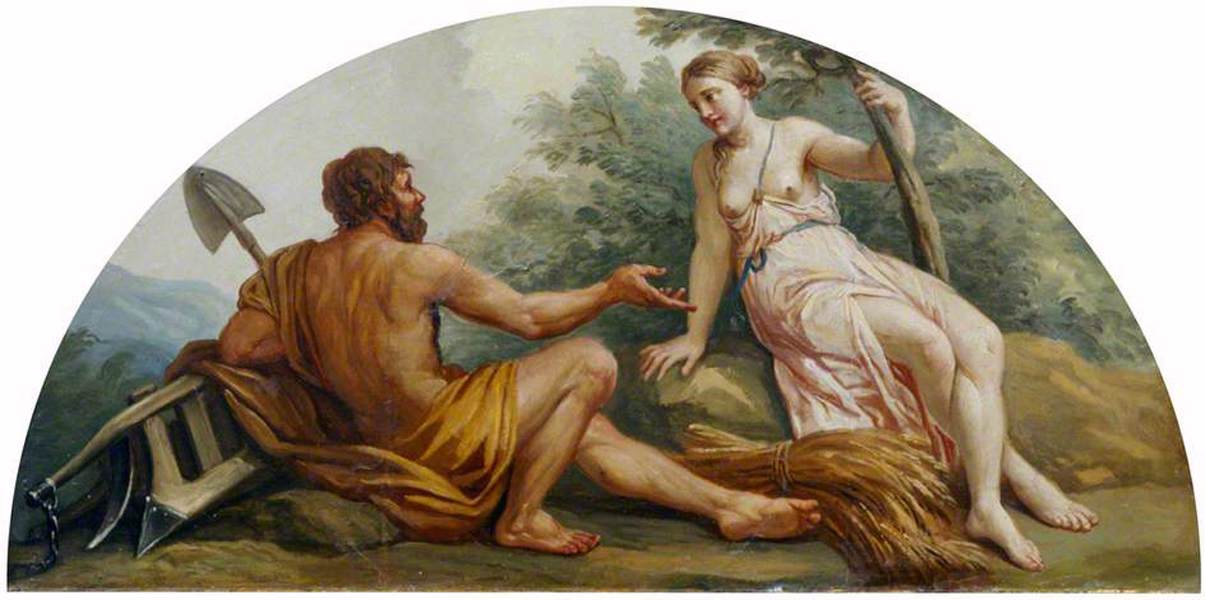Description
The painting "Agriculture" by the artist Antonio Zucchi is a fascinating work that captivates viewers with its unique artistic style and detailed composition. With an original size of 48 x 98 cm, this masterpiece stands out for its ability to capture the beauty and harmony of rural life.
In terms of artistic style, "Agriculture" clearly reflects the influence of Neoclassicism, an artistic movement that developed in Europe during the 18th and early 19th centuries. Neoclassicism is characterized by its emphasis on simplicity, clarity, and precision in the representation of forms and subjects. In this painting, Zucchi uses sharp lines and geometric shapes to represent the elements of the scene, bringing a sense of order and balance.
The composition of "Agriculture" is another interesting aspect of the painting. Zucchi manages to create a harmonious and balanced scene by carefully distributing the elements on the canvas. In the center of the work, there is a female figure that personifies agriculture, surrounded by various characters and animals that represent agricultural activities. This hierarchical arrangement of the subjects in the painting highlights the importance of agriculture in society.
The use of color in "Agriculture" also deserves to be highlighted. Zucchi uses a palette of soft colors and earthy tones to represent the rural scene. The predominant green and gold tones evoke nature and convey a sense of calm and serenity. Additionally, the artist uses subtle contrasts of light and shadow to create depth and volume in the painting.
The history of "Agriculture" is also fascinating. This work was created in the 18th century, a period in which agriculture played a central role in the economy and society. The painting reflects the importance of agriculture as a source of livelihood and wealth, and also celebrates the beauty and vitality of rural life.
In addition to these more well-known aspects, there are some interesting and little-known details about "Agriculture". For example, Zucchi is said to have been inspired by ancient Roman mythology to represent the central female figure, who could be a personification of the goddess Ceres, the goddess of agriculture and fertility. This detail adds an additional layer of symbolic meaning to the painting.
In short, Antonio Zucchi's "Agriculture" is an impressive work of art that stands out for its neoclassical style, its balanced composition, its use of color and its historical relevance. This painting transports us to a rural world full of beauty and vitality, and invites us to reflect on the importance of agriculture in our lives.

